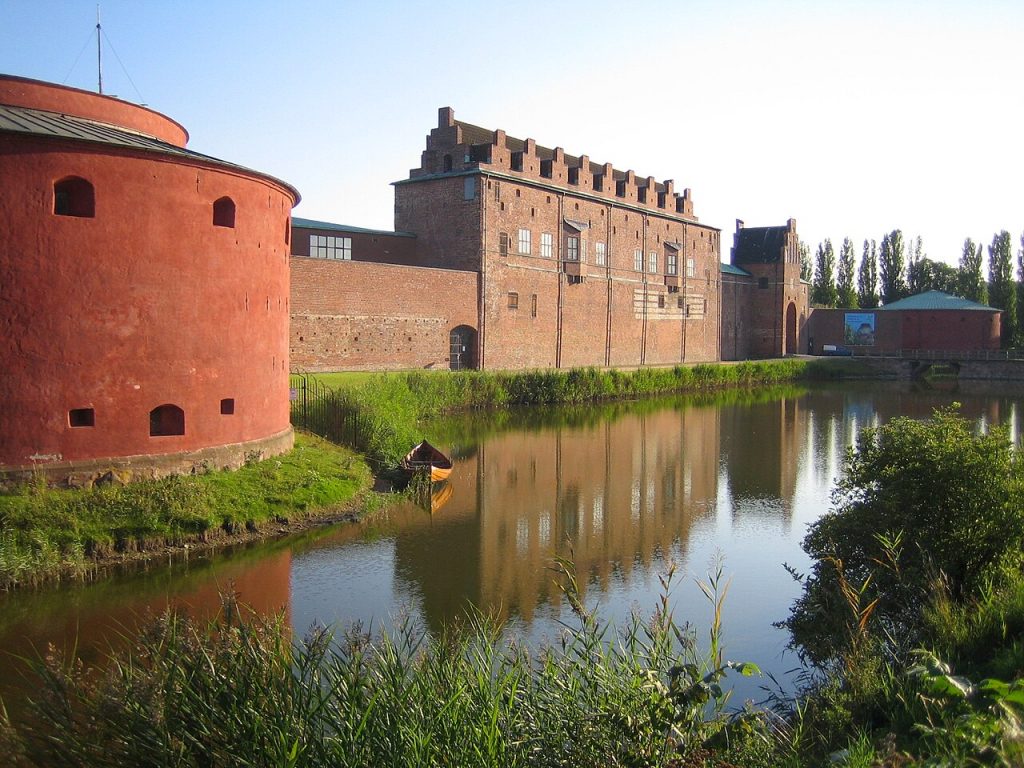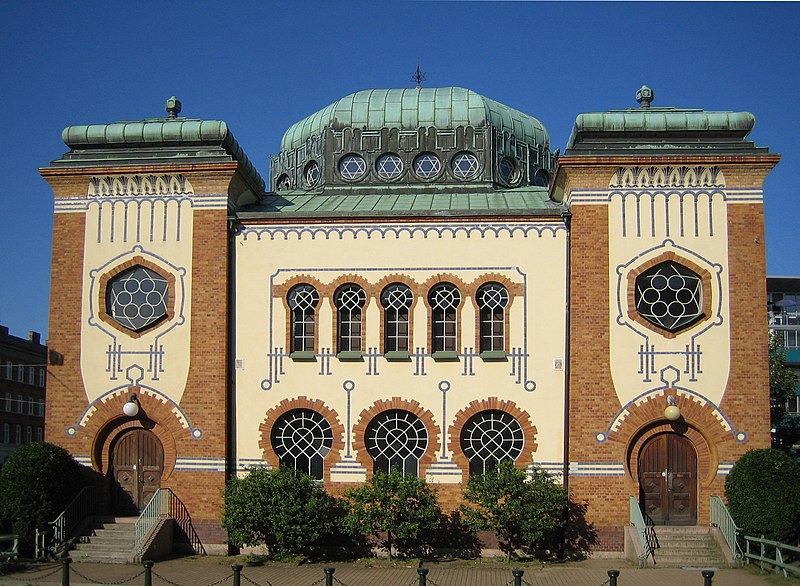
Danish Jews evacuated during the Nazi occupation arrived by boat in Malmö thanks to Count Folke Bernadotte. Some Jews died after their arrival and are buried in the city cemetery, where a monument honors their memory.
A Jewish community (originally made up of German Jews) was established in this city on the Baltic coast facing Copenhagen in 1871, shortly after the emancipation. It now numbers 1200 members. Its community center , partially financed from German reparations, was built in 1962. An Orthodox synagogue continues to function on the Föreningsgatan at the corner of the Betaniaplan. Built in 1903 in an eastern style, the synagogue is crowned by an onion dome reminiscent of Orthodox churches.

Malmö’s Jewish community carries out its activities in two suburban centers: the community center in Lund , which houses the Institute for Jewish Culture, is used only for holidays, while Helsingborg’s community center is always open. The Jewish community centers of Landskrona and Kristianstad, on the other hand, have been closed since the early 1990s. The interior decorations and furniture of Kristianstad’s synagogue are now being used by a Scandinavian community living in Raanana, Israel.
For the past 20 years or so, a wave of anti-Semitic attacks has reached Sweden, notably the city of Malmo, mainly due to neo-Nazi and Islamist movements. Whether it was attacks on Holocaust survivors, vandalism in cemeteries, or burning of places. An explosive was placed in front of the community center in 2012. Five years later, anti-Semitic slogans were uttered at a demonstration, and the chapel in the Jewish cemetery burned down. In 2020, during an Islamist demonstration, calls for the murder of Jews were made.
These particularly lofty acts in that city have forced Swedish Jews to leave it for Israel or other places where they feel more secure. The number of Jews has therefore declined sharply, by at least half, to less than 1,000 today.
In 2025, to mark the 250th anniversary of Malmö’s Jewish community, the city is organising a number of events in close cooperation with Malmö’s Jewish community. These include an exhibition devoted to Jewish heroines, which is on display in several municipal libraries.